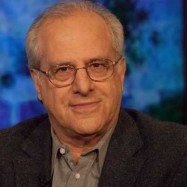The sign I carried at the March on Washington said: “March on Washington for Jobs and Freedom.” I had just graduated from the University of Minnesota and was an intern at the State Department. A half century has not dulled the memory of that hot, muggy, August day. The civil rights movement had become a mighty river, and the vast, peaceful, exuberant crowd seemed to signify a new chapter in the American story. I did not know then that I would spend the next half century working on the dreams described that day, and that most of the time, it would be in the face of strong resistance.
Racial change was accelerating rapidly for the first time in the twentieth century. Before his assassination, President Kennedy had called for the most substantial civil rights law in 90 years. After, President Johnson embraced the cause and masterfully moved the Civil Rights Act through Congress. It was a time of immense possibilities and great accomplishments. But the people who spoke that August at the Lincoln Memorial were veterans of hard, long fights for racial justice and knew that no march or speech or even the laws that followed in the next years could eradicate all the institutions, practices, beliefs and fears that sustained inequality.
In the months and years that followed, urban riots, the black power movement’s repudiation of King’s dream, the corrosive impact of the Vietnam War on the Democratic coalition, and the Republican surge in midterm elections showed that change was going to be very tough. Politics were shifting from expansion of civil rights to rhetoric promising harsh action against “crime in the streets.”
Five years after the exuberant March, Martin Luther King was dead, and President Johnson, whose civil rights record was unequalled, had lost his own party’s support. His opponent in the 1968 election, Richard Nixon, shifted the party of Lincoln to embrace a “southern strategy” which opposed urban school desegregation, called for limiting voting rights regulation, promised to stop “activist” courts, and began to remake the GOP into a party whose strongest base would be in the resistant white South.
For civil rights workers, there were some amazing accomplishments as many pillars of the Southern system of state-supported apartheid fell and groups of historically excluded voters became part of a more democratic society. But there were also deep disappointments as the agenda of the Southern segregationist movement began to influence national politics, civil rights reform faltered in the north, the jobs agenda was not addressed, and the courts and agencies charged with implementing change were turned over to skeptics and opponents. There would not be another progressive appointed to the Supreme Court for 25 years, and the Court, reconstructed by conservative appointments, became an enemy of racial progress.
The last major civil rights act was passed 45 years ago. The growth of civil rights in the courts ended nearly four decades ago, and serious reversals began in the late 1980s. Whites now see a black president and some people of color living in white suburbs and assume that civil rights reforms are no longer necessary. The obvious inequalities that clearly still exist in poverty, incarceration, educational attainment, wealth and other major aspects of society are seen by most not as discrimination that justifies more civil rights change, but as problems that can be blamed on minority communities for failing to take advantage of opportunities, and on the teachers and others who work with communities of color.
The reality is that in a number of very critical dimensions of civil rights there are large and growing gaps that have often been perpetuated or even deepened by the conservative policies that were supposed to work in what they defined as a post-racial society. School segregation has now been increasing for almost a quarter century. Access to college degrees has become significantly more unequal, at a time when those degrees have become even more critical in shaping the destiny of young people. Incarceration of young men of color has soared and investment in giving them a real second chance has shriveled. Wealth, long extremely unequal, has become more so, in part as a result of the housing crisis that was worst for families of color. Mobility is declining as the public sector and major industry, which were more favorable to minorities, have declined. We have gone through the most dreadful economic reversal in 80 years with no large vision of social and economic change.
In celebrating the March on Washington we usually communicate exactly the wrong lessons. Students recite the “I Have a Dream” speech as if the speech solved the problem of discrimination and made the nation fair. The truth is that the March didn’t win any rights. Decades of civil rights struggles and political battles broke the back of Southern apartheid, but there never was any similar sweeping victory against the northern and western forms of discrimination. Government has been in control of opponents of King’s dream most of the time since his assassination. We celebrate Brown and the great civil rights decisions, but the public knows virtually nothing about the major decisions of the past quarter century that have severely weakened civil rights laws, authorizing a return to segregated schools and discriminatory local election restrictions. We don’t talk about the disappearance of the war on poverty, the federal jobs program, and most of the programs meant to fix and rejuvenate our cities. There is no serious national discussion about the incredible gaps by race or the truly devastating impact of imprisonment jobless young men. There is no serious discussion about how to help collapsing central cities which have now often been left to poor black and Latino families where government intervenes only to protect bondholders as city institutions collapse.
We have to get serious about facing the realities of our time, as the marchers who came to Washington did a half century ago. We need a new dream for this century, a new social movement, and new tools to transform a polarized and divided society into an equitable multiracial community.
Gary Orfield is the Professor of Education, Law, Political Science and Urban Planning at the University of California, Los Angeles. He was co-founder and director of the Harvard Civil Rights Project, and now serves as co-director of the Civil Rights Project/Proyecto Derechos Civiles at UCLA.










